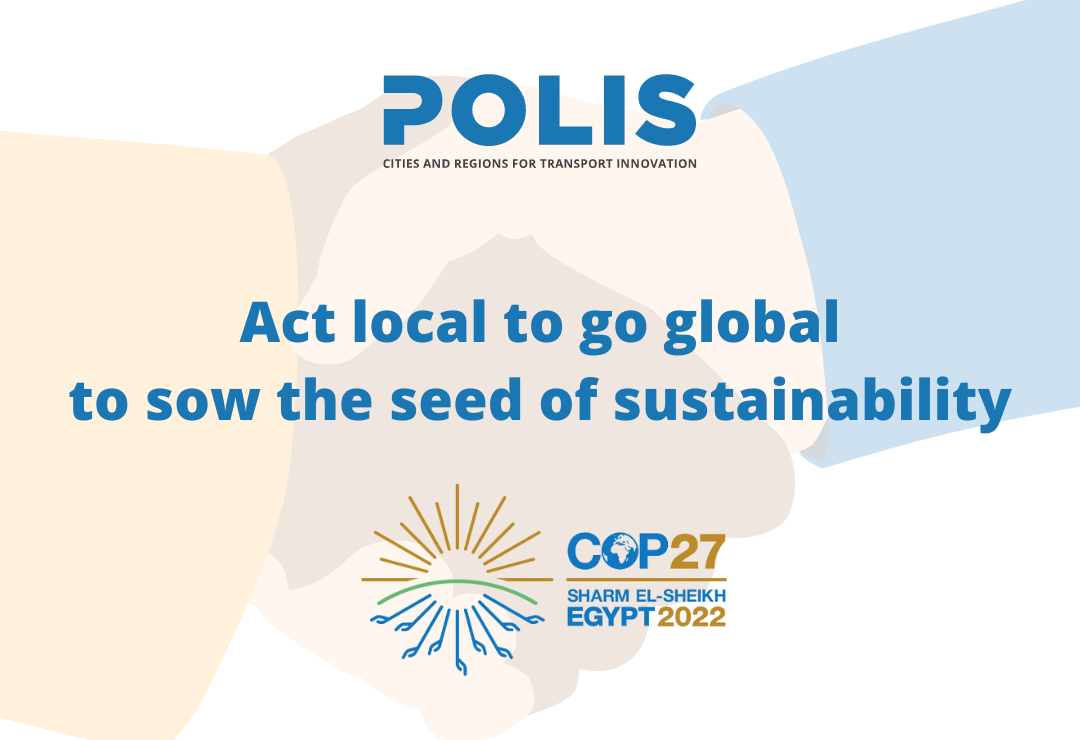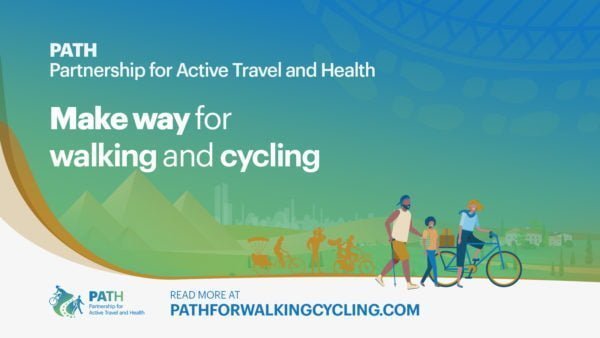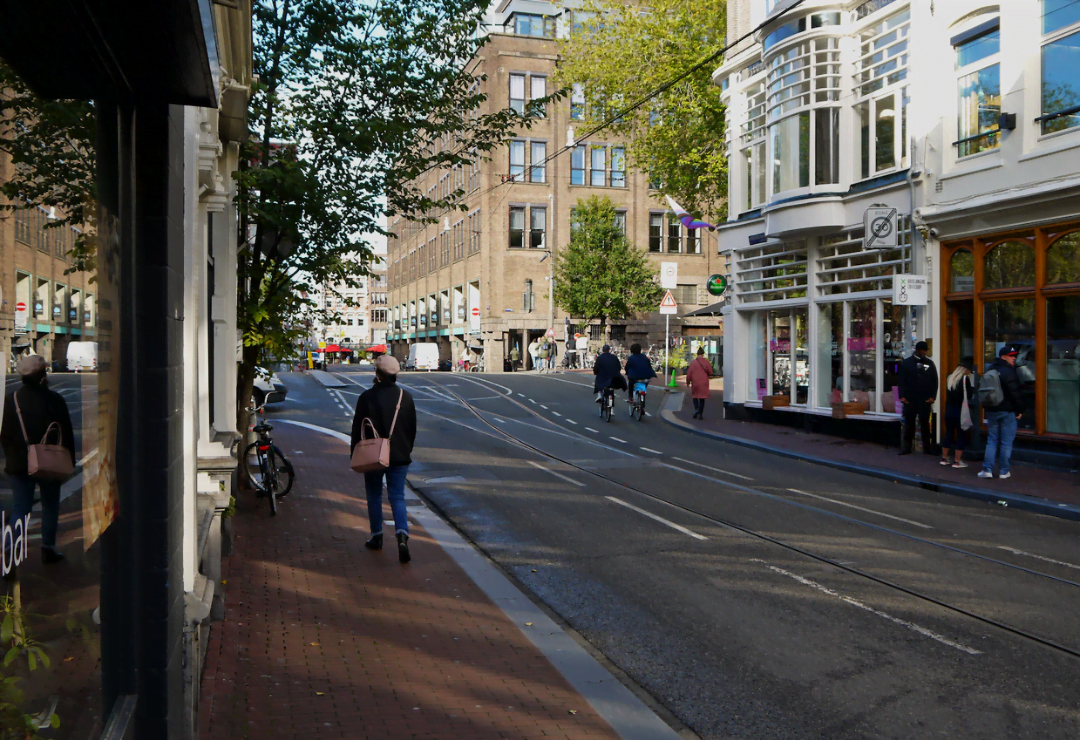POLIS joins call for investment in active travel
POLIS has signed a letter to COP27 calling on governments and cities to invest more in walking and cycling.
Enabling more people to walk and cycle safely can play a greater role in achieving climate goals, and is a quick, affordable, and reliable way to lower transport emissions while improving public health, strengthening the economy and supporting a fairer, more equitable society.
60% of urban trips are shorter than 5km, a quarter are less than 1km- yet walking and cycling currently make up just a third of these. With the number of urban trips expected to more than double between 2020 and 2050, this needs to change… fast!
As part of the PATH (Partnership for Active Travel and Health), POLIS joined a wide alliance of mobility stakeholders calling for active travel to be placed front and center of sustainable mobility agendas.
PATH is a new coalition, spearheaded by FIA Foundation, European Cyclist Federation, Walk-21, the United Nations and others; calling on governments and cities to make a real commitment to walking and cycling as a key solution to the climate, health and equity challenges which they face.

The PATH group
From the All India Bicycle Federation to Bicycle Industries Australia, Cork Healthy Cities to Cycling Embassy Botswana, the signatories to the letter to COP27 are diverse in geography, yet united in their ambition to support active travel.
POLIS too firmly believes that walking and cycling can- and must-play a central role in the future of our cities and regions. Thus, in addition to POLIS' own letter to COP27, calling for international leaders to take decisive and concrete action at this year’s summit, we have added our signature to PATH's letter.

POLIS calls on COP27 to take decisive action and listen to cities
Our Active Travel Working Group supports POLIS members in reallocating space for cycling and walking, encouraging them to build on the momentum which was prompted by the pandemic to expand and enhance cycle lanes, bicycle parking, pedestrian space and more!
From Bruges to Bologna, POLIS members are rapidly developing long distance cycling lanes, school streets, bike parking, sharing schemes and more- to increase the modal share of active travel.
“Prioritising active modes have many benefits, from economic, environmental and social aspects, as highlighted by PATH and many other similar initiatives. Walking, biking and all variations of active travel are also relevant for the future of our cities and communities as it strengthens the relationship between people and places, increasing the sense of community and belonging. People can leave the passive use of the public space behind and engage and better understand the space surrounding them," says Andréia Lopes Azevedo, the working group’s coordinator.
Critically, this group seeks to align walking and cycling agendas to work together, rather than compete for space. We can no longer see pedestrian and cycle infrastructure as a zero-sum game, after all, they both have a common goal: more space for active mobility.
"Active modes alone or as part of intermodal journeys can bring greater independence for citizens, but it is also important not to overshadow vulnerable street users (e.g. older people, people with disabilities, and children) so that everyone can profit from the independence that active modes bring," Azevedo adds.
“Active mobility still faces many challenges and weak spots, and we should clearly address them without fear of undermining the positive sides. That is why within the Active travel & Health Working Group, we value such initiatives and call for action, so we can continue to bring different stakeholders to discuss the challenges and collectively progress in solutions for walking and cycling in our cities.”
PATH has also published a comprehensive report which provides an overview of the social, economic and environmental benefits of active travel, and the ways land use planning, campaigns and capacity building can be harnessed to propel action. It is a helpful tool to support cities in the path to prioritize active modes.

POLIS members can find further resources on the members' page HERE.
